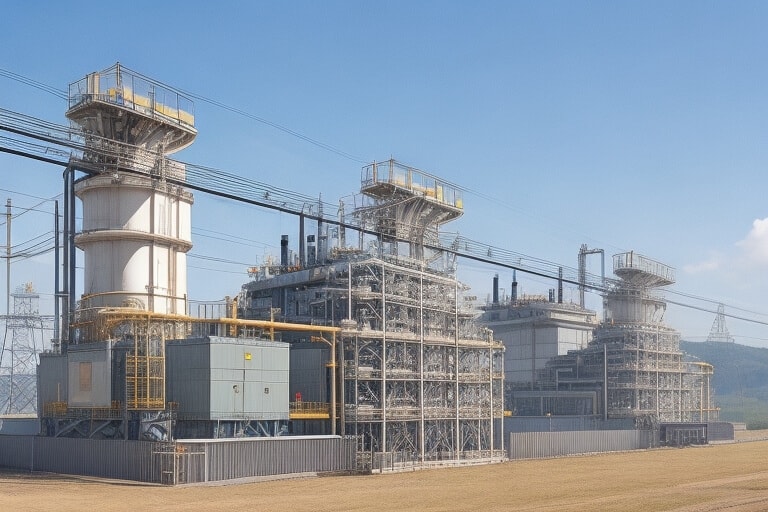
- October 17, 2023
- allix
- Research
In the midst of the ongoing energy transition, a prominent trend shaping the power market’s evolution is the emergence of decentralized power generation. This transformative shift is characterized by the decentralization of energy production, the integration of intelligent energy systems, active participation from consumers, and a heightened reliance on renewable energy sources. In this paradigm of distributed generation, electricity is derived from an array of local power sources, as opposed to originating from a single centralized station. For instance, homeowners equipped with solar panels have the capacity to feed surplus electricity back into the grid.
In these distributed generation systems, the pivotal role is played by inverters, which undertake the task of converting the generated electricity into alternating current with a specific frequency, typically 50 Hz in Europe and CIS countries. A team of researchers from Skoltech has introduced an innovative algorithm designed to regulate and enhance the quality of electricity injected into the primary grid. The outcomes of their research have garnered recognition from the IEEE community and have been featured as part of the 2023 IEEE Belgrade PowerTech conference.
Ilya Veretennikov, the lead author of this research and an engineer at the Energy Center’s Smart Grid Laboratory, elaborates on the concept: “Inverters are programmed with mathematical functions and equations containing specific coefficients. If the grid parameters remain constant, a one-time adjustment of these coefficients suffices. However, in energy systems characterized by distributed local generation, which undergo continuous changes (such as fluctuations in market participation affecting electricity sales), it becomes necessary to recalculate these coefficients. Ensuring the quality of electricity is of paramount importance, as it must adhere to established standards to be eligible for injection into the grid.”
The research team has developed an algorithm for a controller designed to automatically recalibrate these coefficients, thereby assuring the quality of electricity introduced into the primary grid. Using calculated voltage data, this controller generates control signals to maintain the desired alternating current frequency of 50 Hz, devoid of any distortions.
“In the course of our research, we devised a comprehensive grid model along with a more detailed inverter model. These served as instrumental tools for evaluating various controller algorithms in terms of their stability and efficiency. Subsequently, we validated our findings through experimental data by connecting a real inverter to the grid. We emulated a scenario involving local energy consumption, where a portion of the generated power is transferred to the grid. In our laboratory, we exclusively work with low-power inverters suitable for residential use. Our state-of-the-art equipment enables us to conduct real-time simulations, facilitating the emulation of grids with varying numbers of inverters and parameters,” Veretennikov further explains.
The authors of this research foresee significant potential for the application of their work in remote regions that continue to rely on unsustainable energy sources, despite having access to ample sunshine. The research team is actively working on achieving full automation of the algorithm, following the plug-and-play concept.
Veretennikov concludes by highlighting their vision: “Configuration can be a cumbersome task for end-users. As it stands, not all parameters are automatically configured. We are diligently developing an algorithm to make it entirely automated, resembling a modern device that can be employed immediately after connecting it to a computer, with no manual configurations required.”
Categories
- AI Education (37)
- AI in Business (62)
- AI Projects (85)
- Research (57)
Other posts
- The Complete List of 28 US AI Startups to Earn Over $100 Million in 2024
- Keras Model
- Scientists Develop AI Solution to Prevent Power Outages
- NBC Introduces AI-Powered Legendary Broadcaster for Olympic Games
- Runway Introduces Video AI Gen-3
- Horovod – Distributed Deep Learning with TensorFlow and PyTorch
- Research Reveals Contradictory Positions Of AI Models On Controversial Issues
- Using AI to Understand Dog Barking
- The Autobiographer App Uses Artificial Intelligence To Record Your Life Story
- Chainer – Dynamic Neural Networks For Efficient Deep Learning
Newsletter
Get regular updates on data science, artificial intelligence, machine



